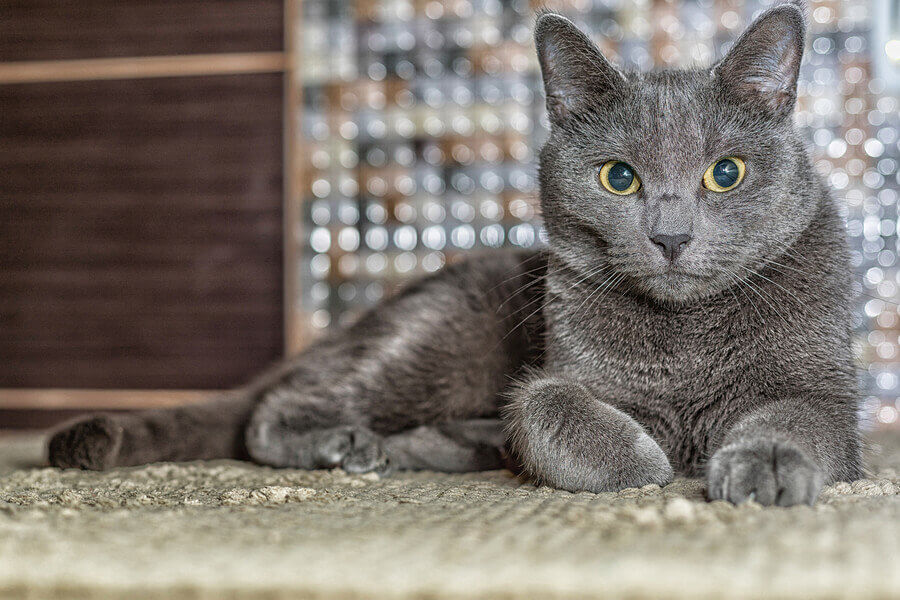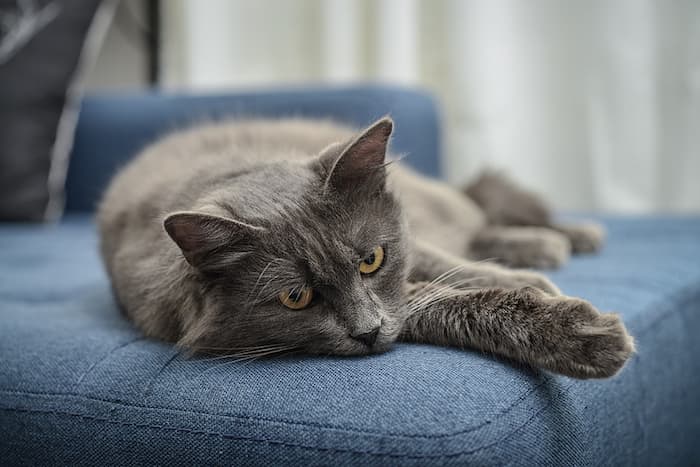The Russian Blue cat is thought to have originated from Russia’s northern city of Arkhangelsk and hence, where it gets its namesake.
What is the personality of a Russian Blue cat
Also sometimes called the Archangel Cat, the Russian Blue is intelligent and reserved; it, therefore, takes a while to warm up to unfamiliar people. Once the Russian Blue has gotten to know someone and decided that it likes them, it will be a friendly and affectionate cat. The Russian Blue gets along well with other pets and children – once it has had a chance to get to know them. While the Russian Blue enjoys attention, it doesn’t demand it, and it can handle solitude better than demanding breeds like the Sphynx.
Quick Facts
- How much does a Russian Blue cat cost? They can range from $500 to $3,000.
- How long do Russian Blue cats live? They can live 15 to 20 years.
- When do Russian Blue cats eyes turn green? They will turn in about 4 months.
- Do Russian Blue cats shed? While they do have thick coats, they do not shed a lot.
- Are they smart? They are known to be rather intelligent.
- Are these cats rare? They are growing in popularity and are not considered rare.
- How much should they weigh? They should weigh between 7 and 15 pounds (3-7 Kg)
- When do they stop growing? They will stop growing around 12 months
How much attention does a Russian Blue need?
Russian Blues have short and thick fur that needs to be brushed once or twice a week. Combing them will remove loose hair and keep the cat from getting hairballs. While Russian Blues can entertain themselves, they do enjoy attention from their owners. Petting and playing with a Russian Blue will keep the cat from becoming depressed or anxious.
Does a Russian Blue have specific dietary needs?
Keeping a Russian Blue’s weight under control can be a challenge. It should be fed twice a day. Depending on the cat’s size, age, and activity level, it should be given ¼ to ½ cup of food per meal. While Russian Blues can be given dry or wet food, the food needs to be high in protein with no carbohydrates. Meat should be the primary ingredient.
What are the most common health issues of the breed?
The Russian Blue loves eating and is thus prone to obesity. The most common inherited disorders in Russian Blues are Hip Dysplasia and Hyperparathyroidism. Aside from that, they are generally healthy cats.
More Cat Breeds


